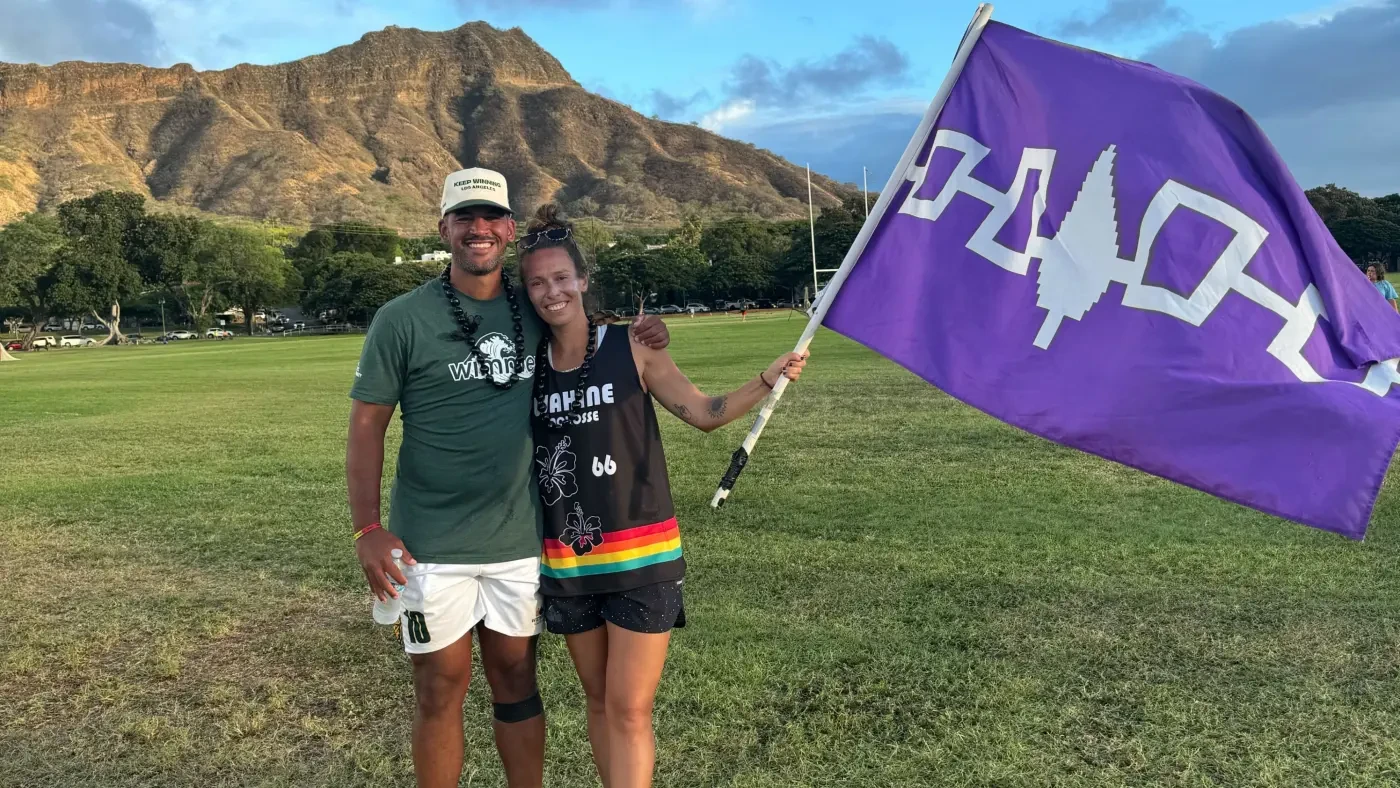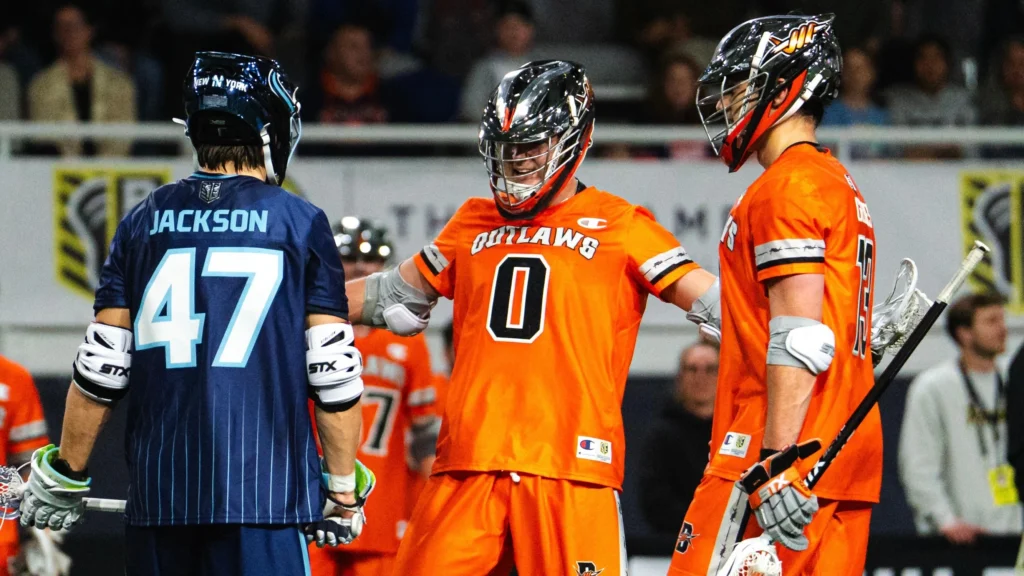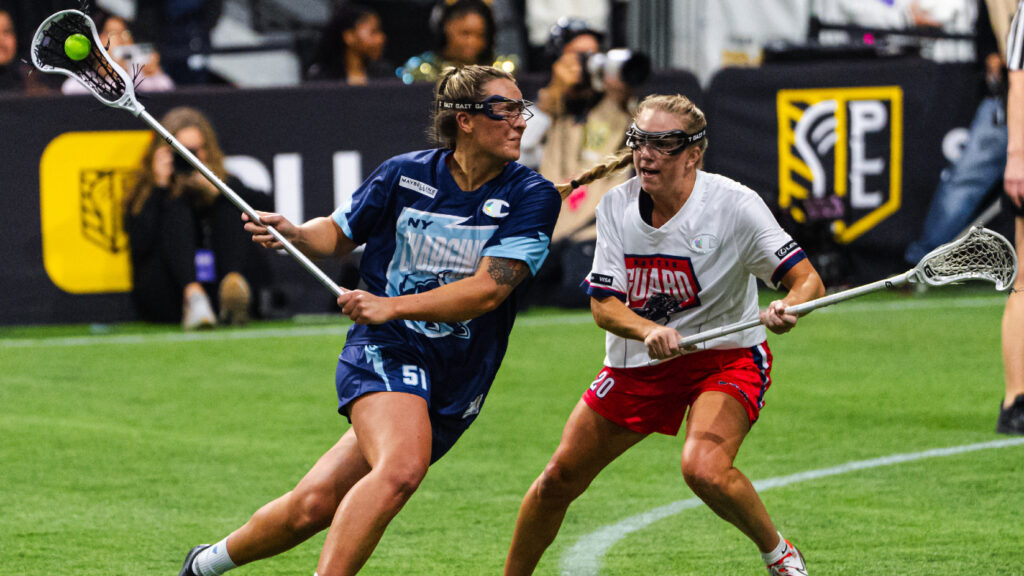As a young girl, Trenna Hill spent many days on the Onondaga Nation cross-legged in front of Alfie Jacques, the renowned stick maker, as he told the story of the first game of lacrosse. She was the only girl in the group.
The boys didn’t think the story applied much to Hill since women were not allowed to play lacrosse on the Onondaga Nation. Hill, however, felt especially empowered by the story and identified with it.
In the first game of lacrosse, the two-legged animals – the birds of the sky like the hawk, the falcon and the eagle – took on the four-legged animals such as the bear, the wolf and the deer. The rat and the squirrel tried to play on the four-legged animal team, but those animals said the rat and squirrel were too small.
The two-legged animals helped stretch the skin on the squirrel to make the flying squirrel, and they stretched drum leather across the rat to create the bat. There are different versions of the story, but in the end of all of them, either the bat or the flying squirrel scored the game-winning goal.
Hill understood the plight of the bat and flying squirrel not being included because it was her shared experience. The moral of the story stuck with her through the years.
“It’s a fable about inclusion and how to never exclude people and how everyone has certain gifts and everyone’s contribution is essential,” she said. “The bat is the hero of the story. He can’t fly straight. He’s blind. He’s not quite a winged animal but not quite a land animal, but he wins the game.”
“That story meant a lot to me in terms of how to create belonging wherever I went and not wait for other people to grant me it,” she added. “The way I accomplished that is through lacrosse.”
Hill’s family – like many Indigenous families – is a lacrosse family. Her papa is Oliver Hill, a star player whose lacrosse journey included being a freshman at Syracuse when he was 32 years old and setting the record for most goals scored in a game by a freshman. Her dad played lacrosse, as did her brother, Tyler, who would go on to play at Le Moyne and Hobart.
She wanted to follow in the footsteps of the males in her family, but it was taboo to do so on the Onondaga Nation. She was the only Native girl playing on the reservation at the time. While the men in her immediate family supported her, her extended family and the surrounding community were against it.
Hill would play in the yard at her grandmother’s house – across the street from the Longhouse – and as people drove by and saw her with a stick in her hands, they’d call her grandmother to complain.
As if that wasn’t enough for Hill to have to play through, she also is biracial. Onondaga is a matrilineal society, and since Hill’s mom is not Native, she was not accepted by the community.
“There was already an identity crisis going on with feeling Native enough and being biracial,” she said. “There were multiple things that made it challenging and made it hard to navigate as a young athlete and as a young person, but I always felt at home playing lacrosse.”






